Ma told me this when I said I wanted to become a fisherman. She said like my Pa, my life will be short and wasted. I will drown in liquor, philander with uncouth village women and bring my future wife unmentionable diseases. The good homely woman will suffer and God forbid, have this same conversation with my future son.
And worse, if money becomes the Creed by which I’d dole out the rest of my life, leaving her to a wretched life in the village, then I should as well consider myself a dead son to her. Just like Johnny, that brother of mine who got swallowed up by that satanic, filthy, wretched city they call Juba.
From that day on, a smile never showed on my Ma’s face. She’d look at me like I was smoke that would soon disappear from her eyes. She carried a long face everywhere she went. I had become a shadow to her, sauntering about the yard like a ghost. And she had stopped being the bubbly old lady that always sang songs over her daily chores.
My greedy uncle Luta came over, saw her and asked me which of Ma’s hot tempered wires I had stepped on now. Ma had rejected his incessant pestering. He lamented how he’d wanted to bear more children for my father through mama, how the ignoble wretched woman had refused. I almost punched him in the throat but calmed myself down. Imagine, just two children, two sons and no daughters to bring cows into this big compound? Why does she want to kill my brother’s name? What a wasted chance, he lamented further. I think he was just happy to see mama all sad.
I told him that I felt tethered like a goat to this village, that I was going out to find myself some good schooling. I lied that I’d send him money if I made it big in the city. Like the greedy vulture that always sheds tears of joy at every misfortune, he grabbed me into a big sweaty hug, rubbing my neck with his big yet smooth almost girly hands. Be careful out there he warned. I hear there are foreign women in the city with swift loose waists that will send you into ecstasy, leaving diseases without proper names in your loins.
Ma was sitting on a mat that day, under the mango tree in our yard. Her legs stretched out like two big yams before her. The chickens brawled over the peas she shot at them. I mumbled something, but her eyes never lifted from the pan. She just sat there, lip locked, quietly picking out the shriveled black eyed peas from the heap sitting in the pan on her lap, shooting out one pea each time at the fowls. She never wasted any farewell words on me.
I walked away from the village that day feeling like the weight of the whole world was resting on my shoulders. As I climbed up that incline on that gravel trail heading north from the village, the sky gods belched eerily.
I had heard but never believed that talk in the village about someone in my family having a potent power that could set a wet bush on fire. I had heard even bizarre stories about my lazy greedy uncle. They said he could invoke the spirits of his fore fathers to cull a fowl if he wanted. The poor bird would suddenly develop a case of the palsy, run helter-skelter as its legs slowly weaken. Then it would tremble like a leaf. It would struggle like a weak man trying to ferry a heavy load. Its little legs would struggle left then right then left again and stop in a heap.
Suddenly the white cotton clouds became ugly grey devilish dark cumulonimbus. And big blobs of rain pelted down in torrents upon my barely clothed back. The skies growled and howled like a pack of wild dogs having an Armageddon size brawl, battling each other for the destiny of my soul. The wind was so angry that it slapped branches off trees onto my path. The women I saw on my way, rushed about collecting the cloth kites that flew off their airing lines. The sky gods made a joke and took selfies while unleashing loud bolts of thunder.
I walked through the wetness merrily. It was thirty five or so miles walking from my village into the heart of the city. I ended up at that place where they buried the Liberator. Two mean looking cross faced army men stood by his grave. One shouted and warned me to disappear from there. I quickly left and went to the other side of the big square, where the flags of many countries, planted on the tips of long spear like poles, flapped and danced like banana leaves in the air.
There was a little market there. Custom they called it. I saw many people there, busy like army ants, cruising around like army tanks in a battle. Everybody was doing something in a rush. One angry young man asked me to buy some of his stuff. I looked into his box but couldn’t buy a thing because I didn’t have any money. He looked at me like a heap of cow dung, spat and called me a stupid villager, then shoved me into the nearest gutter. I was glad I never carried a spear that day. I was told I didn’t belong there.
I was angry but also hungry, yet couldn’t find something to eat.
I walked down a lone path, to a filthy part of the city. I saw a group of children and women digging out stuff from a mountain of garbage. There were a whole lot of them. Slimy nosed toddlers with legs extending like cow horns from their mothers’ backs. Mean looking teens in patched shorts with sniffing bottles stuck to their lips. Their ash grey buttocks stuck out from the colorless shorts like little granites.
You cattle boy, what are you doing here?
A loud mouthed woman called out at me. She told the boys to get rid of me. I ran faster than a whirl wind towards the Nile. Yes the river flows down there but is full of plastic bottles and all sorts of other rubbish.
I ended up huffing and puffing in a big garden, full of ripe bananas, near a big catholic church. I sneaked in through the barbed wire fence and forgot to apologize to God before lunching on the sweet yellow bananas. In the end, I was so full that I couldn’t walk anymore. I made myself a banana-leaf bed, added a stone pillow and wandered into dreamland. In my dreams I became an international fisherman, selling fish all over the world. Then a man in a white robe showed up. And for a second I thought I was in heaven.
How wrong. I had officially become a banana thief.
After confessing to my crime and telling him my story, the catholic priest made me work in the church farm. The church had some fish ponds. That’s where I worked. A trio of water beds filled with lots of Nile tilapia. I fed the fish and cleaned out the ponds. The reverend father gave me a little room behind the church. That’s where he kept all the church farm tools. I learnt that if I wanted to start a pond in my village, then all I needed was a ‘breeder set’ of five females and one male Tilapia to start off.
Three months later, I begged the reverend father to ask God to forgive my banana sins. He prayed and said the messiah once fed thousands with a few fishes and was forgiving too. I left there with ten pounds as wages in my pocket. He gave me some of his old cloths and a free breeder set of tilapia. That was six years ago.
Ma is singing now, one of her happy day songs. She’s singing it with the women who came with us in a van, tailing the freezer trucks from my ponds to the airport. Ma is wearing the new sarong my brother Johnny sent her from Canada. It has pictures of fish all over it. Her song says, today when my first fish lands in those outside countries. I will become an international fisherman, the first from this country.
I have never seen her so happy.
*********
Post image by b k via Flickr
About the Author:
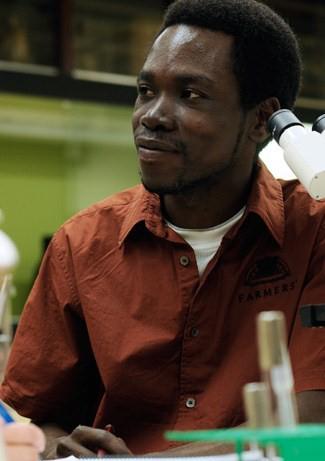 Dedi Seyi is the author of Borrowing Fire. He has a BA in Anthropology and History from a Canadian varsity. He loves to write and traverses genres from poetry, short stories to screen plays. Every day he craves for another story, a glass of ice cold mango juice, smooth jazz and a moment of Nile breeze under the cool mango shades of Juba, South Sudan.
Dedi Seyi is the author of Borrowing Fire. He has a BA in Anthropology and History from a Canadian varsity. He loves to write and traverses genres from poetry, short stories to screen plays. Every day he craves for another story, a glass of ice cold mango juice, smooth jazz and a moment of Nile breeze under the cool mango shades of Juba, South Sudan.


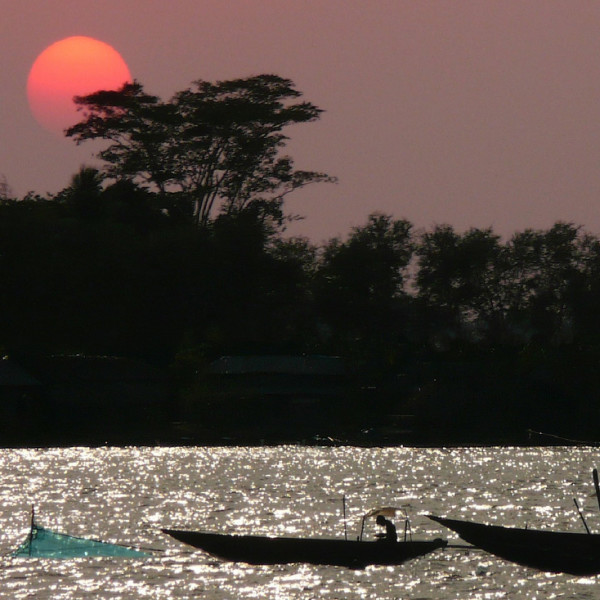
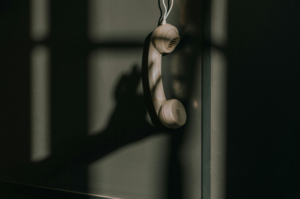

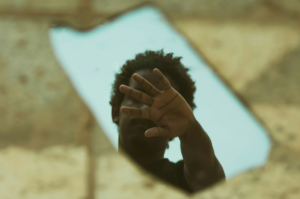
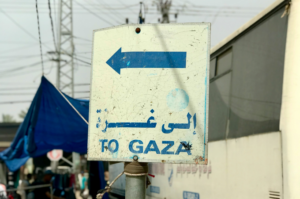
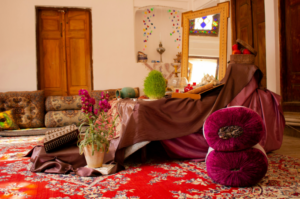
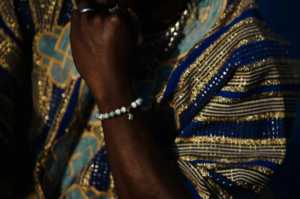

udoh chris June 08, 2016 05:38
man! you are not just good but Dem good...love it